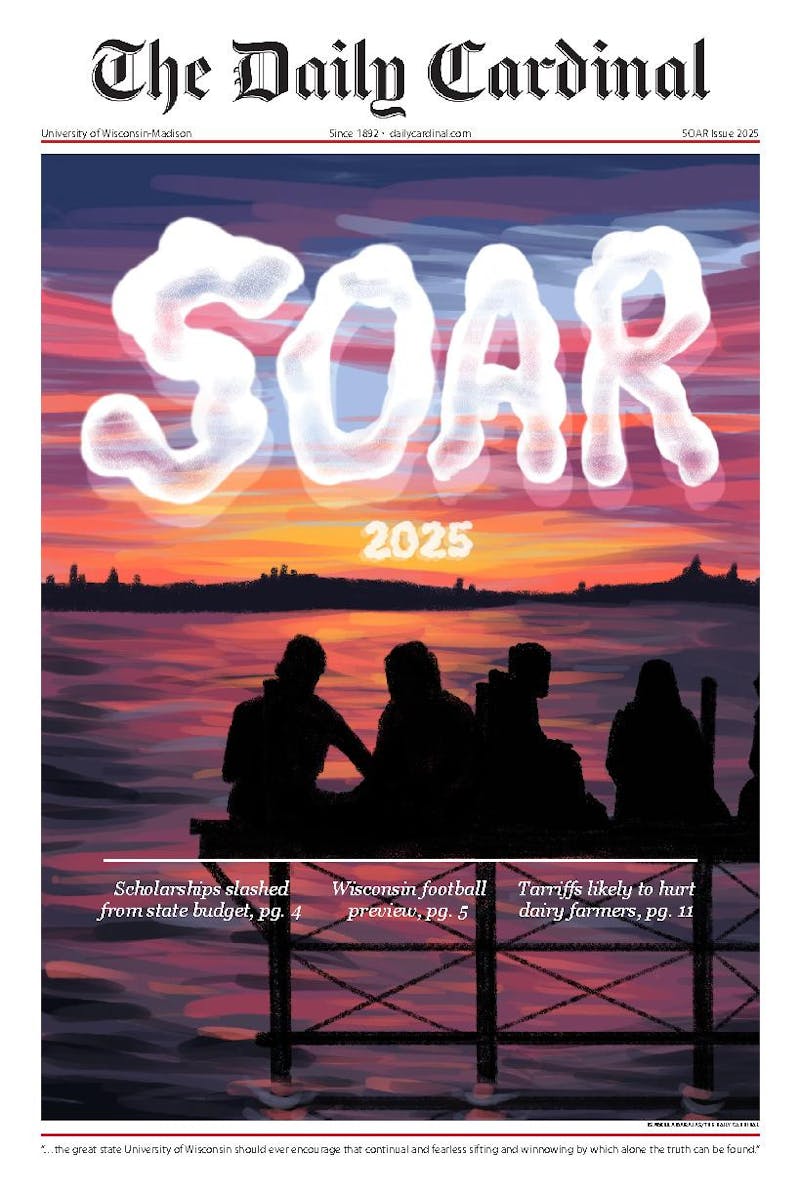Although once considered an infeasible and costly option for homeowners, Madison city officials and residents now recognize composting as a crucial element to city-wide sustainability.
“It is very feasible,” said Ald. Scott Resnick, District 8.
Compost, as defined by the Environmental Protection Agency, consists of naturally cultivating organic waste material, which can then be used to supplement soil and grow plants.
The potential of composting is being seriously explored and implemented in Madison, both as a backyard and commercial effort, due to the benefits of diverting this waste from landfills.
Additionally, composting byproducts can be used to enrich soil, prevent methane pollution and reduce the need to use fertilizers and pesticides.
In a 2012 Organic Waste Systems study, researchers found Madison diverts approximately 66 percent of its “waste stream” away from landfills through recycling and composting.
Madison event planners and city officials contributed to the diversion by adopting new practices and committing to policies that facilitate green methods respectively.
For example, organizers of La Fete de Marquette, held last July, used all compostable tableware for the celebration, according to a statement. City officials praised their efforts as a model for future expenditures.
La Fete de Marquette event planners composted and recycled more than 1,100 pounds, while only sending 57 pounds of waste to the landfill, according to the statement.
"The effort took some advanced planning but with a commitment to composting, you can divert almost all the trash from the landfill," Madison Recycling Coordinator George Dreckmann said in the release.
A proposal to expand the “curbside composting” initiative also took a prominent position on the local stage in the October 2013 city budget discussions for the 2014 fiscal year, according to Resnick.
Brought forward by Madisonians as a leading concern through an Internet voting program called "IdeaScale," Resnick cited the expansion of curbside composting as particularly beneficial to reach more densely populated areas of Madison.
The current pilot program includes neighborhoods in District 6 on Madison’s East side and District 7 on Madison’s West side. However, an additional 1,600 households, eight to 10 restaurants and one grocery store will be added by this July, according to Dreckmann.
City Council's final approval of the 2014 budget in November 2013 provided funding for the expansion.
Madison currently sends compost collected through the pilot program to Oshkosh, Wis., which has the capacity to fully break down and dispose of the materials with a biodigester. However, Dreckmann said he hopes Madison will have an operational biodigester by 2017, negating the need for compost disposal outsourcing.
The 2012 OWS study estimates it would cost the city approximately $15 million to install and operate a biodigester in Madison. However, the study projects the significant initial cost would rival landfill-dumping costs in the long run, especially if offset with revenues from renewable energy sources.
If Madison’s “zero-waste” plan is to succeed, which aims to reuse or recycle all materials, implementing a biodigester is crucial, according to the study.
In addition to building compost infrastructure, Resnick said city officials are working to educate residents about how to compost on a smaller scale.
An estimated 43 people attended a recent introductory composting class Dreckmann taught, sponsored by the Madison Public Library, at Pinney Library April 13, according to Digital Services & Marketing Manager Tana Elias. She said similar library events in the past typically attracted only 20 to 30 attendees.
Attendees learn which materials are compostable and where to store their compost bin, in addition to basic household compost management.
While the program has been in place for multiple years, Elias did note a growing interest, as evidenced by the improved turnout.
As residents and city officials strengthen their collective commitment, Resnick said he expects environmentally friendly initiatives will become be more prevalent in the near future.
“I see city officials very supportive of composting and going-green initiatives,” Resnick said.





